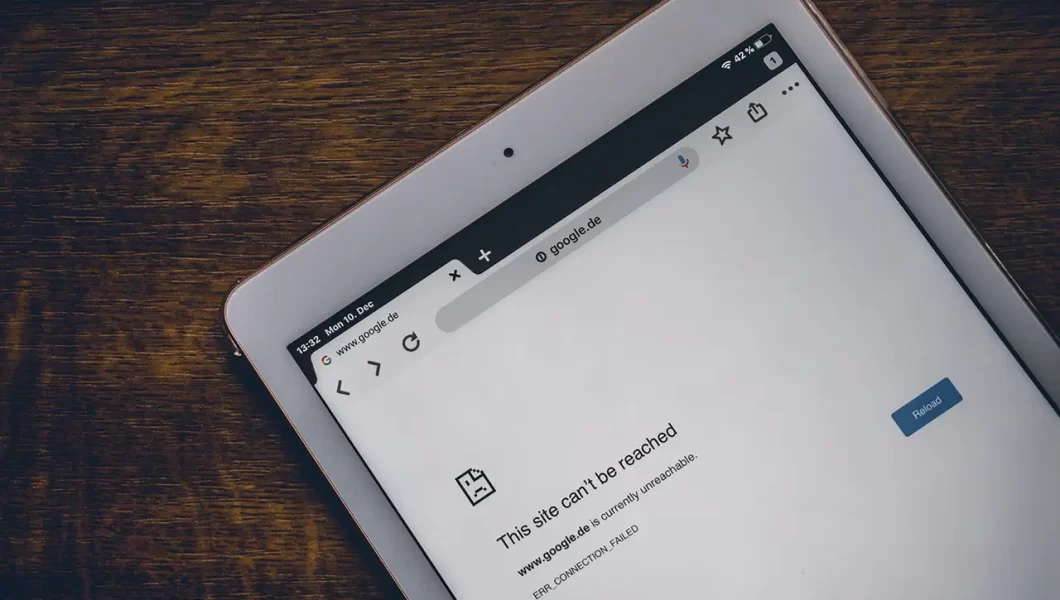Imagine waking up one morning, reaching for your phone or laptop, only to find that the Internet has vanished. No more connectivity, no more online interactions, no more access to vast repositories of information. It’s a scenario that might sound like the plot of a dystopian novel, but it’s a thought experiment worth exploring. What would happen if the Internet, that ubiquitous force reshaping almost every facet of our lives, suddenly ceased to exist?
What?! No Internet?! The Initial Disbelief
The first moments would be characterised by disbelief and confusion. People would try refreshing their browsers, resetting their routers, and checking their data connections, only to be met with the same eerie silence. Social media platforms would explode with frantic posts, hashtags, and memes as users desperately try to make sense of the situation.
Economic Fallout
The economic repercussions would be swift and severe. E-commerce, the cornerstone of modern retail, would grind to a halt. Companies heavily reliant on online sales would see their revenues plummet overnight. Stock markets would react chaotically, as investors scramble to assess the long-term consequences of a disconnected world.
A Revival of Traditional Commerce
With online shopping no longer an option, brick-and-mortar stores would experience a sudden resurgence. Consumers would flock to physical shops, rediscovering the tactile experience of browsing shelves and interacting with salespeople face-to-face. Local businesses, once threatened by the dominance of online giants, would find new opportunities to thrive.
Supply Chain Disruptions
The disappearance of the Internet would disrupt global supply chains in ways we can scarcely imagine. Just-in-time inventory systems, which rely on real-time data and communication, would falter. Manufacturers, retailers, and logistics companies would struggle to coordinate their operations, leading to shortages and delays across industries.
Communication Breakdown
One of the most profound consequences of losing the Internet would be the breakdown of communication networks. Email, messaging apps, and Voice over Internet Protocol (VoIP) services would all cease to function. Suddenly, we would find ourselves cut off from friends, family, and colleagues, separated by invisible barriers that once seemed inconceivable.
The Return of Snail Mail
In a world without internet, postal services would experience a renaissance. Letters and packages, once relegated to the realm of nostalgia, would regain their importance as the primary means of long-distance communication. Post offices, which have struggled in the digital age, would find themselves inundated with parcels and envelopes.
The Decline of Remote Work
The rise of remote work, facilitated by high-speed Internet connections, would come to an abrupt halt. Companies that had embraced telecommuting would be forced to adapt to a more traditional office-based model. Collaboration tools like Zoom and Slack would become relics of a bygone era, replaced by face-to-face meetings and telephone calls.
Internet Blackout = Information Blackout
The Internet has democratised access to information, but its disappearance would plunge us into a new age of ignorance. Search engines like Google would be rendered useless, leaving us to rely on outdated encyclopaedias and dusty library shelves for knowledge. Fake news and misinformation would proliferate unchecked, as fact-checking websites and online forums vanish into thin air.
Educational Challenges
Students and teachers would face unprecedented challenges in a world without the Internet. Online learning platforms, which have become increasingly popular in recent years, would vanish overnight. Remote education programmes would grind to a halt, leaving millions of learners without access to resources and support.
The Death of Digital Culture
The Internet is not just a tool for communication and commerce; it’s also a vast repository of culture and creativity. Streaming services like Netflix and Spotify would go dark, depriving us of our favourite films, music, and TV shows. Social media platforms, which have become virtual playgrounds for memes and viral content, would fall silent.
Finding a Way Forward Without Internet

The disappearance of the Internet would undoubtedly be a cataclysmic event, shaking the very foundations of our society. But as we grapple with the consequences of this hypothetical scenario, we must also remember our resilience as a species. Humans have faced adversity throughout history, and each time, we have found a way to adapt and overcome.
In the absence of the Internet, we would rediscover the value of face-to-face interaction, the importance of family and community, and the power of human ingenuity. We would rebuild our communication networks, our economies, and our cultural institutions from the ground up, forging a new path forward in a world devoid of internet.
So while the thought of a world without the Internet may be daunting, it’s also a reminder of our capacity for resilience and innovation. And who knows? Perhaps in the absence of the digital distractions that consume so much of our time and attention, we might rediscover what it truly means to be human.
Adapting to Analogue Solutions
In the absence of the Internet, we would revert to older methods of problem-solving and entertainment. Board games, once reserved for family gatherings, would experience a resurgence in popularity. Bookstores, long overshadowed by online retailers, would once again become vibrant hubs of literary culture. People would rediscover the joy of physical newspapers, magazines, and books, reviving industries long thought to be obsolete.
Building Communities Without Online Networks
In the absence of online forums and social media groups, communities would find new ways to connect and support one another. Neighbours would organise local events and gatherings, strengthening bonds that had become frayed in the digital age. Civic organisations and grassroots movements would mobilise using traditional methods of outreach, such as flyers and word of mouth.
Leveraging Offline Resources
Libraries, once threatened by digital books and online research databases, would experience a renaissance. People would flock to these repositories of knowledge, seeking out books, periodicals, and reference materials to satisfy their curiosity. Librarians, once deemed obsolete in the age of Google, would become trusted guides in navigating the vast sea of information available in print.








No Comments